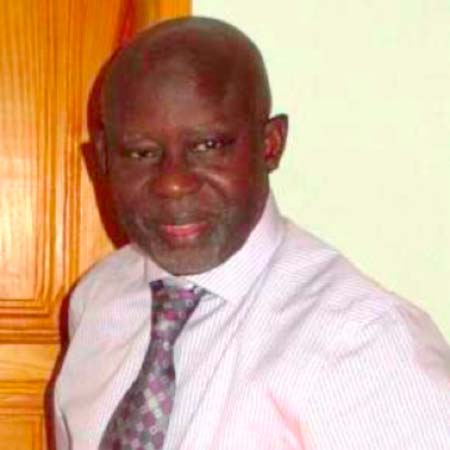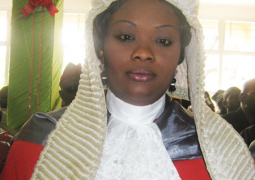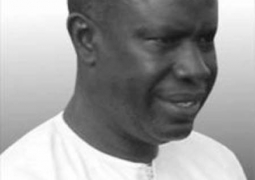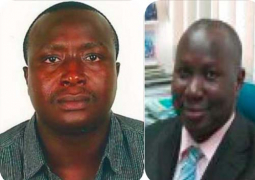
The
leader of the United Democratic Party (UDP) lawyer Ousainou Darboe Monday told
the court that a Nigerian judge in The Gambia is infringing on their rights as
Gambian citizens.
Darboe
made this remark when he was called upon to enter into his defence, in the
criminal trial involving him and 19 others before Justice E.O. Dada of the
Banjul High Court.
The
other accused persons are Kemeseng Jammeh, Femi Peters, Lamin Dibba, Lamin
Jatta, Yaya Bah, Babucarr Camara, Fakebba Colley, Ismaila Ceesay, Momodou
Fatty, Dodou Ceesay, Samba Kinteh, Mamudou Manneh, Nfamara Kuyateh, Fanta
Darboe, Lamin Njie, Jukuna Suso, Momodou L.K. Sanneh, Yaya Jammeh and Masanneh
Lalo Jawla.
They
are indicted on seven counts of Unlawful Assembly, Riot, and Incitement of
violence, riotously interfering with vehicles, holding a procession without a
permit, and disobeying an order to disperse from an unlawful procession and
conspiracy.
When
the case was called for defence, the trial judge then asked the accused persons
if they wanted to open their defence or would wait for their lawyers.
The translator, Mr Camara, was asked to
translate, but he said he has a sore throat and he could not.
Lawyer
Ousainou Darboe, the 1st accused person, then rose and said: “We are accused
persons who are unrepresented and whose rights have been infringed on even though
The Gambia is the birthplace of the Africa Youth Charter, the home to the
African Centre for Human and Peoples’ Rights, as well as an advocate of human
rights.
“The
Nigerian judges in Nigeria stand by their citizens and protect and defend their
rights, whilst a Nigerian judge in The Gambia is infringing on our rights as
citizens.
“Our
rights have been denied by a court that should protect our rights as citizens.
I will not participate in a trial where my rights have been denied and
violated.”
After
his remarks, the supporters that filled the courtroom started clapping to show
solidarity with Darboe’s statement.
The
trial judge then said the court would not tolerate the act of the supporters in
the courtroom again and, if it happened again, they would not be allowed in the
court to witness the proceedings.
The
trial judge then ordered the translator, Mr Camara, to translate in the Wollof
language for the benefit of the accused persons, and asked them if they wanted
to enter into their defence or wait for their lawyers.
The
translator Camara again told the judge that he has a sore throat, and as a
result he could not translate for the accused persons.
The
judge became angry and insisted and instructed the translator to do his job,
but the translator again said: “My lord, I am sick and I have a sore throat.”
The
trial judge then started writing and the translator got up to leave the
courtroom and the judge asked him to come back, but he told the judge that he
was going to the bathroom and then he left.
A
few minutes later, the translator Camara walked into the court accompanied by
the Judicial Secretary who approached the judge and talked to her, while the
judge was still writing.
The
Judicial Secretary then left the courtroom and came back with another Wollof
translator, P.M Bojang, who replaced Mr Camara.
P.M
Bojang then asked the rest of the accused persons if they wanted to open their
case or would wait for a lawyer, but they all remained mute.
The
trial judge said based on the circumstances it was clear to the court that “the
accused persons do not wish to open defence”.
DPP
S.H. Barkun then said in view of that he was applying for seven days to file a
written address, subject to the court’s convenience.
The
accused persons were asked if they would file an address, and Darboe then said:
“I will not contradict myself by filing a written address when I do not
participate in the case. I have said that when I am convicted, then I will say
why sentence should not be passed on me.”
The
trial judge then gave the state days to file their address.
The
case was adjourned until 12 July 2016, for adoption of address.




